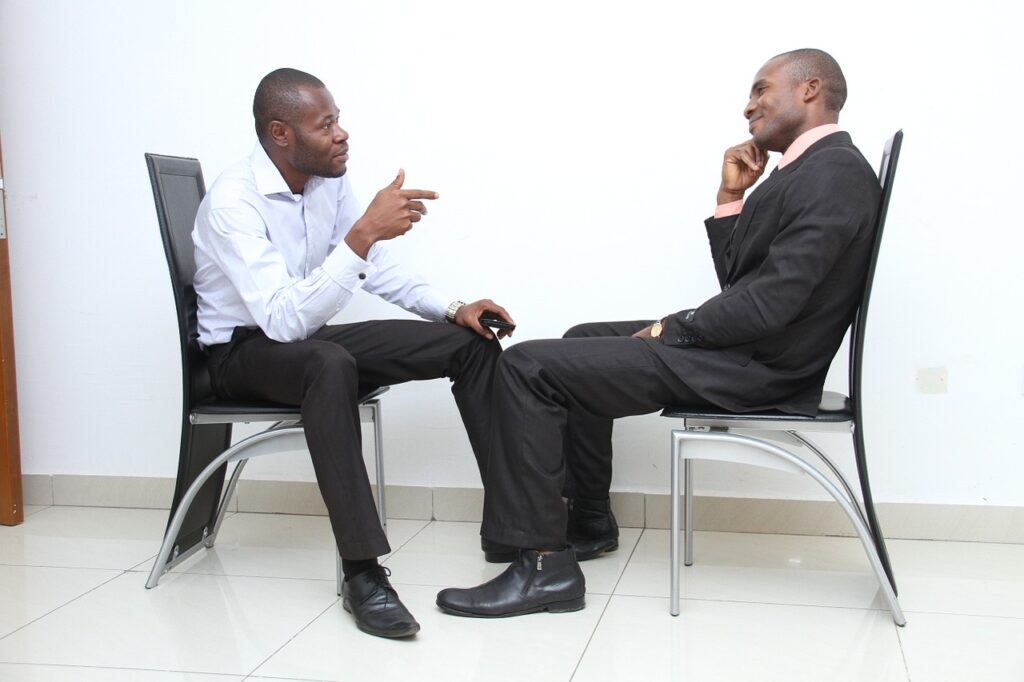Even a short interview takes place in the context of a relationship
You need to make people feel comfortable, engaged, and ready to trust you. Learn how to build rapport, what you need to do at different stages, and how to manage difficult situations.


What is rapport and how do you build it?
It’s a subconscious feeling of connection. We are more likely to trust people who are like ourselves. With strangers, we judge this by signals – if they seem to be in tune with us, matching our type of body language, our voice tone, the rate at which we talk, the words we use – and by implication, our values and beliefs.
To create rapport deliberately, face to face, we can subtly mirror posture, hand movements, head nodding and so on.
But even online we can just use our voice speed and tone, and pick up on some of the same words, to help create a sense of a harmonious relationship.
Think of it as catching up to someone ahead of you, then walking along together at the same pace.

Simple tips for keeping people engaged
- Appreciate what they say: “Thank you, I am learning a lot.” “Thank you, this is very useful.”
- Avoid repetitive questions or tasks
- Use visual thinking to help people remember, decide, and express themselves by using actual or virtual sticky notes. Write down criteria, positives and negatives, group, sort and map the notes.
- Use stimulus material to make things more concrete- logos, packs, websites, advertising etc
- If you are in rapport, then deliberately increasing your own energy with liven up the respondent too.

How to manage difficult situations
Stay calm and don’t blame the respondent. Don’t assume they are deliberately causing trouble.
For an over-talkative person
- Learn to interrupt politely (use their name)
- Remind them of the task – and the time
- Reassure them they have been heard
For a quiet person
- Leave them more space – it may feel awkward but don’t chat to fill the gaps
- Use more visual techniques
For an upset person
Stop the interview and ask them what they need now
What to do at various stages of a depth interview
Researcher’s and participant introduction. The participant may be apprehensive at the start, and will need information, reassurance and a sense of inclusion
Warm up/ context for the subject. A chance to build rapport and deal with any doubts or challenges.
Open-ness and co-operation will result, with the respondent feeling valued and wanting to help. Explore your most important issues now.
Make time for a good close, with an accurate summary, hopefully leaving both of you with a sense of achievement.
